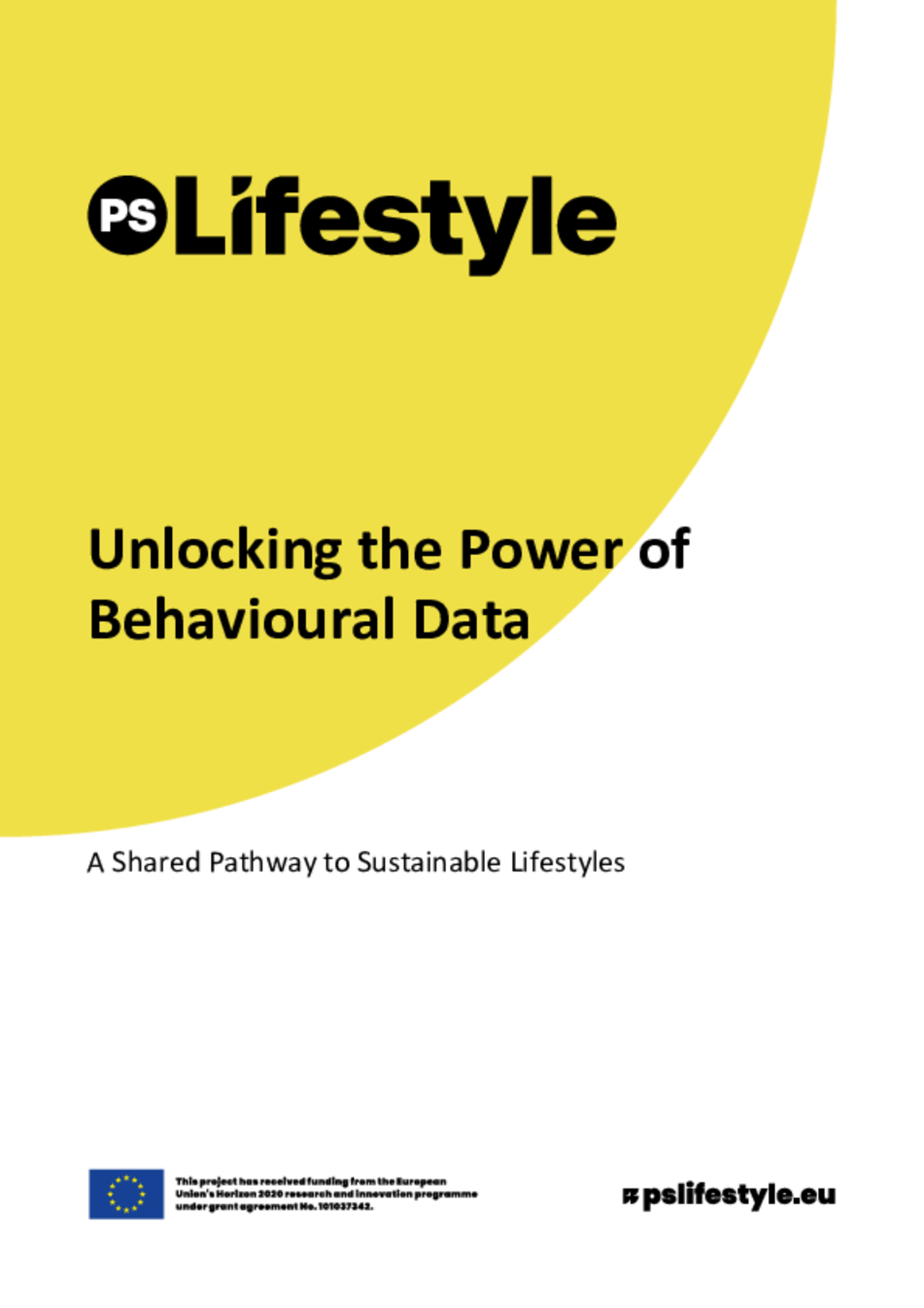PSLifestyle Recommendations
Adressing an urgent need to increase citizen participation in sustainability actions, The EU-funded PSLifestyle project empowered EU citizens to adopt a sustainable lifestyle and co-create versatile and topical data for decision makers on people’s readiness to change their consumption habits in a more sustainable direction.
The PSLifestyle project has demonstrated that digital tools can do more than inform—they can empower, inspire, and connect. With over 500,000 individual responses and over 50,000 tailored action plans, the Lifestyle Test has built Europe’s richest dataset on sustainability behaviour. But what comes next is even more important: ensuring these insights drive meaningful change across society.
Despite different roles and responsibilities, civil society organisations, policymakers, businesses, and academia converge around a clear set of needs and priorities. Each sees in the Lifestyle Test and the PSLifestyle dataset not only a source of knowledge, but a call to action—towards systemic shifts, inclusive processes, and real-world impact.
The time is now to translate behavioural insight into structural change.
To do so, several cross-cutting principles have emerged:
- From insight to structural change Understanding behaviour is not enough—action must follow. Whether redesigning transport systems, supporting sustainable diets, or rethinking product offerings, policymakers and businesses must use the Lifestyle Test to identify and remove systemic barriers preventing people from making sustainable changes to their lifestyles. This means shaping infrastructure, services, and policy environments to make sustainable and healthy options the most affordable and easy choice.
- Ground action in local realities People do not live in averages. From housing and mobility to diet and energy use, sustainable choices depend on local contexts. The Lifestyle Test’s strength lies in its potential for granularity. Policymakers, businesses, civil society organizations and Academia should push for regionally differentiated analysis and application of the Test and its recommendations—reflecting rural needs, cultural practices, and neighbourhood-level disparities.
- Make data inclusive, accessible, and trustworthy People are more likely to act when they understand and trust the tools guiding them. Transparency about how data is collected, used, and turned into action builds legitimacy. Ensuring cultural sensitivity, demographic relevance, and clarity of messaging strengthens both public engagement and stakeholder uptake of the Test and its recommendations.
- Foster long-term engagement—not one-off interaction Behavioural change is a continuous journey that requires sustained and inclusive stakeholder engagement. The Lifestyle Test should be part of long-term processes—such as ongoing policy development, iterative product and service design, or repeated community-based initiatives—rather than a one-time tool. Embedding it in schools, municipalities, research institutions, and workplaces can help build a culture of shared responsibility and evolving commitment to sustainability.
- Work across silos, not within them Lasting impact demands collaboration. The Lifestyle Test should be more than a policy instrument, business insight tool, or engagement platform—it should be a bridge. Cross-sector coalitions can align data with action, ensuring that academic research informs governance, that civil society supports implementation, and that business innovation is grounded in real needs.
This is more than a dataset—it is a shared foundation for a different future. By co-owning and co-applying the PSLifestyle insights, stakeholders can make sustainable living not just a personal goal, but a collective, structural reality.
This project has received funding from the European Union’s Horizon 2020 research and innovation programme under grant agreement No 101037342.
